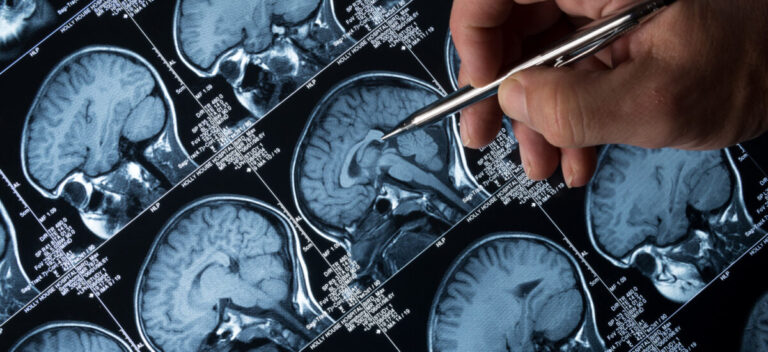
Why coffee is good for your health: real facts and new research in 2025
For half a century, coffee has been blamed for everything from hypertension to “washing out” minerals. We’ve been scared by stories about “adrenal exhaustion” and “premature aging.” But new scientific data shows a very different picture. Coffee has become a true hero in the fight against inflammation, aging, and even heart disease. Why is science rethinking its attitude, and who should stop fearing black coffee?
Forget old myths. A 2023 Harvard study and a series of major reviews (Harvard T.H. Chan School of Public Health) proved: people who drink 2-3 cups of natural black coffee without sugar or milk have a much lower level of C-reactive protein (CRP) a key marker of inflammation and tissue aging.
“Coffee drinkers have lower markers of systemic inflammation and a reduced risk of age-related complications,” explains the Harvard Nutrition Source.
Coffee works as a natural anti-inflammatory: it not only doesn’t “take away” magnesium, but can help the body resist chronic processes at the root of aging. If your diet includes enough micronutrients, coffee doesn’t affect their balance, as confirmed by the international journal Nutrients.
Two to Four Cups and a Lower Risk of Death
“Coffee is harmful because it raises blood pressure and strains the heart” this phrase is still popular. But meta-analyses of over 400,000 people (European Journal of Epidemiology, 2019; Annals of Internal Medicine, 2018) show the opposite: 2-4 cups of black coffee a day lower the risk of premature death by an average of 17-18%.
This is especially true for the prevention of cardiovascular and neurodegenerative diseases.
“Moderate coffee consumption is associated with longer life and better brain function,” emphasizes Professor Marco Paciotti, one of the authors of the European Journal of Epidemiology review.
This is not an advertising slogan these are the results of real long-term observations. And we’re not talking about “superfoods,” but about regular black coffee without milk or sugar.
Coffee Doesn’t Exhaust the Adrenals. It “Highlights” Fatigue
The myth of “adrenal exhaustion” is still popular in blogs and pseudo-scientific circles. But official science disproves this. Reviews in Frontiers in Neuroscience (2021) clearly show:
“Caffeine does not cause adrenal exhaustion, and the short-term rise in cortisol does not harm healthy people.”
If you don’t feel better after coffee, it’s not the drink’s fault, but a result of chronic stress or sleep deprivation. Coffee is not the cause, but a marker of your condition. If you’re still tired after a cup, it’s a signal that your body is overloaded and needs rest not a “detox program.”
Post List
Coffee and Insulin Sensitivity: Protection for Women (and Not Only)
The benefit of coffee for insulin sensitivity isn’t widely known yet. But studies in Japan, the USA, and Sweden(Diabetes Care, 2014; Journal of Nutrition, 2019) unanimously confirm: black coffee without sugar stimulates the enzymatic activity of cells and improves their ability to absorb glucose.This effect is especially strong in middle-aged women and when consumed on an empty stomach.
“Drinking 3-5 cups of black coffee a day reduces the risk of type 2 diabetes by 20-30%,” emphasize the authors of the Diabetes Care review.
Fewer “insulin swings,” less swelling, fewer sudden hunger attacks these are direct results of coffee’s impact on the hormonal balance.
Coffee and Microcirculation: The Science Behind That Rosy Glow
If you notice a slight rosy glow after a cup of espresso, it’s no myth. Research in the European Journal of Applied Physiology (2010) proved: 15-30 minutes after an espresso, women’s skin microcirculation increases by 25-30%. This means better nourishment for cells, a healthy complexion, and even protection from early signs of aging.
“We observed an increase in microcirculation in the small vessels of the face, which contributes to skin health,” note the study’s authors.
So Why Should We Rethink Coffee?
Modern science no longer sees coffee as an enemy, but as an ally of longevity and protection against chronic diseases. Of course, moderation is key: for most people, the optimal dose is 2-4 cups of black coffee a day. Recent reviews (Nutrients, 2024) emphasize: regular coffee consumption is associated not only with lower inflammation and reduced risk of death, but also with improved memory, prevention of certain cancers, and even longer lifespan.
Coffee is not a “bad habit,” but part of a healthy lifestyle if you don’t have medical contraindications. There’s no need to give up coffee out of fear of old myths. In today’s world, a cup of good black coffee is real protection, energy, and even a better chance for a long and active life.













